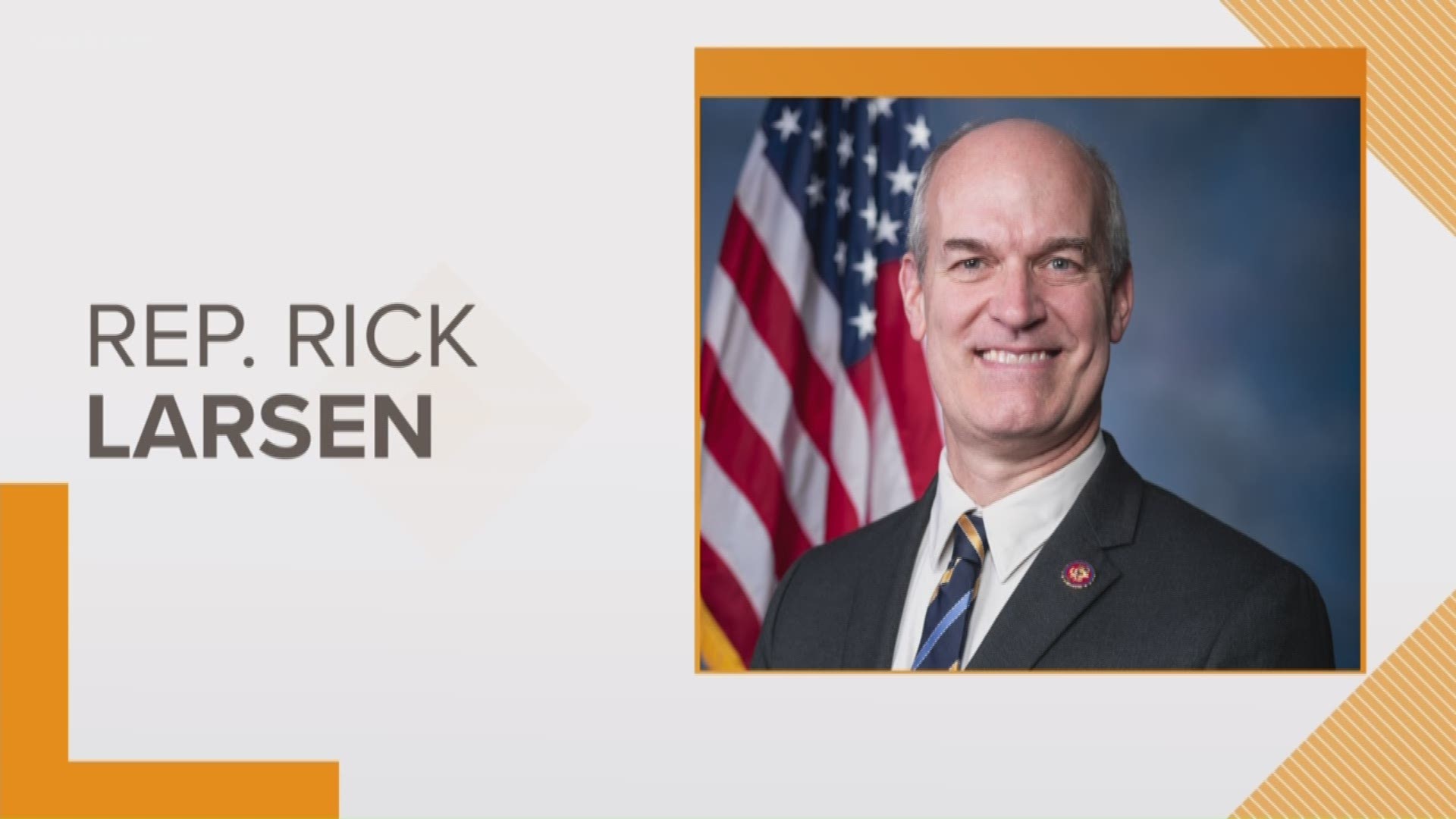The testimony by Paul Njoroge on the fatal crash of a 737 Max in Ethiopia was what Washington state Representative called "heart-wrenching" and "moving." But Larsen said Njoroge's recommendation for Boeing to scrap the jet isn't realistic.
"More importantly, I don't think it's necessary," he said Thursday morning.
What does need to happen is for federal regulators to look at the certification process that led to the 737 Max being certified with flawed safety software that led to two fatal crashes in the span of five months, and "determining if there's something inherent in airplane certification that needs to change," Larsen said.
The Max was grounded after the crashes in Indonesia and Ethiopia that killed 346 people. It isn't clear when it will be allowed to fly again after Boeing makes fixes to flight-control software, which preliminary reports indicate pushed the nose of the plane down in both crashes.
Though Larsen wouldn't go as far to say Boeing should scrap the 737 Max, he said Njoroge's testimony was important. Njoroge, who is from Canada, helped underscore the fact that the Max is made and regulated in the United States. Larsen says U.S. officials have the "obligation" to hear from the international community.
Njoroge was the first relative of any of the 346 passengers who died in the two crashes to testify before Congress.
In testimony he submitted to the House aviation subcommittee, Njoroge says passengers' families have several demands that must be met before the Max is allowed to fly again, including a new, top-to-bottom review of the plane by regulators.
"They didn't want people to know about the design flaw, and that's why they kept the existence of MCAS hidden," Njoroge said, further calling for Boeing CEO Dennis Muilenburg and other executives to resign.
Boeing said it lamented the impact that the crashes are having on families of those on board.
"These incidents and the lives lost will continue to weigh heavily on our hearts and on our minds for years to come," the company said in a statement. "We are committed to working with the communities, customers and the aviation industry to help with the healing process."

